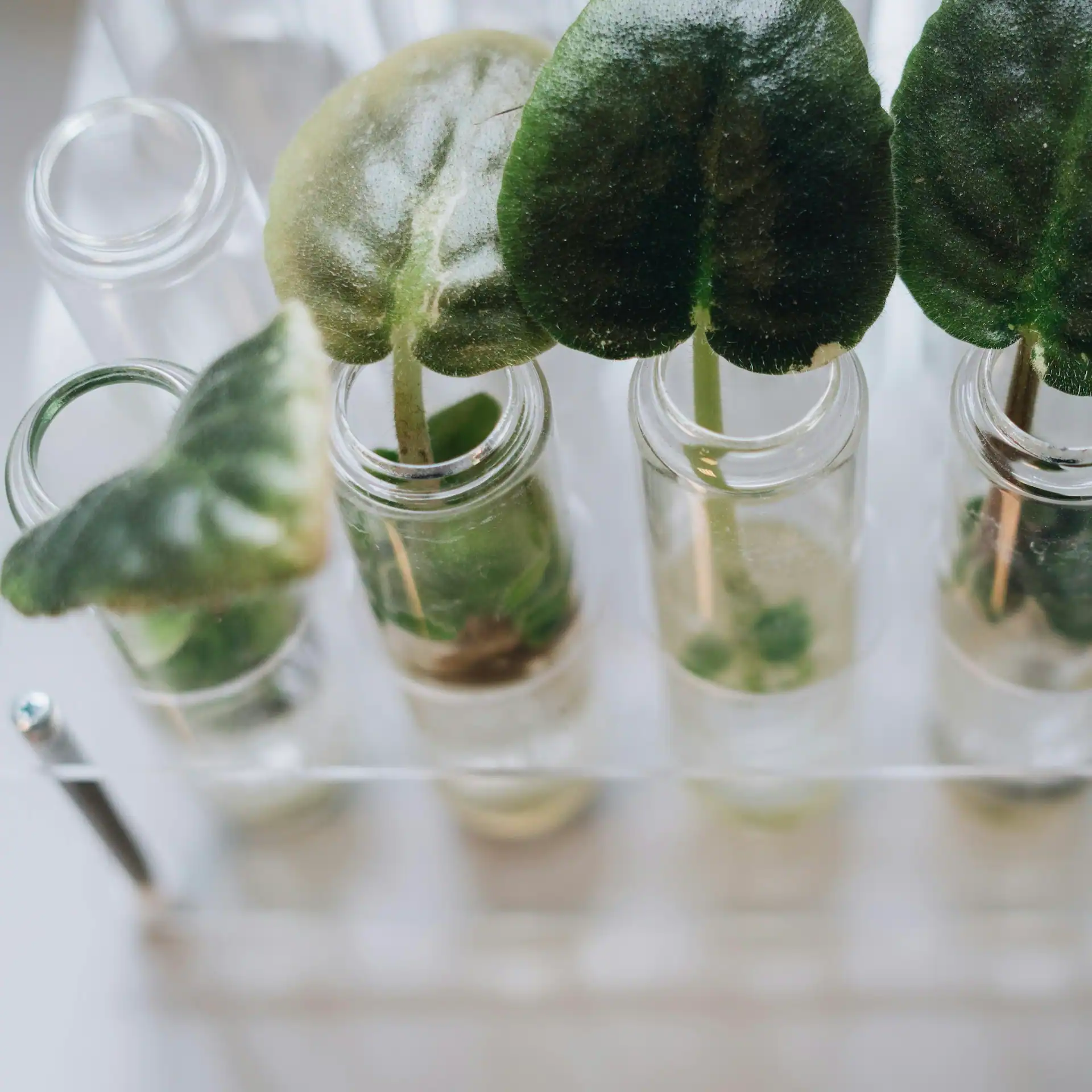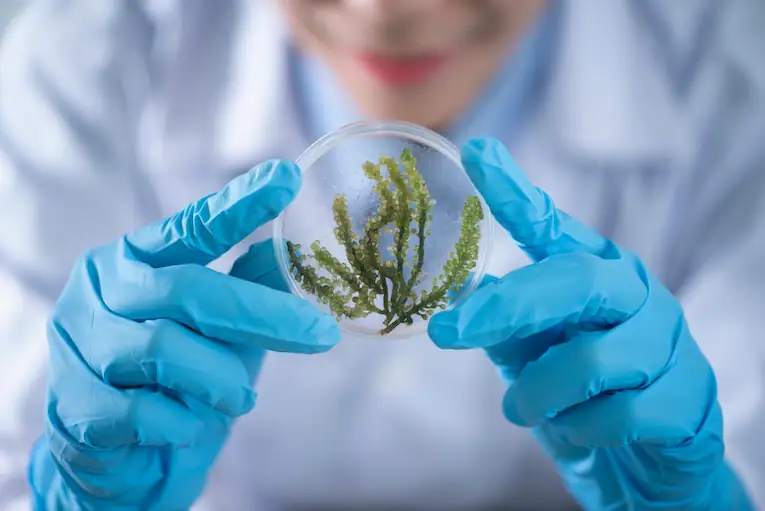The palm oil problem: Is a lab grown alternative the solution?


Editor’s note: This article explores emerging approaches to reducing reliance on palm oil, including lab-grown alternatives. While innovation in this space continues to evolve, the questions and challenges discussed here remain highly relevant.
Palm oil has been in the spotlight for years, and for good reason. It’s one of the most widely used ingredients in the world, found in everything from food and cosmetics to household products.
Yet despite growing awareness of its environmental and social impact, global demand continues to rise. Supply chains are deeply entrenched, and alternatives have long struggled to match palm oil’s efficiency and performance. This raises an important question, what does a real solution to the palm oil problem actually look like?
In recent years, a new wave of innovation has begun to explore that question more seriously. From lab-grown oils to circular production models, could these emerging approaches offer a way forward, or at least reduce our reliance on palm oil altogether?
Key takeaways
- Palm oil is everywhere, often hidden behind unfamiliar ingredient names in food, cosmetics, and cleaning products.
- Its large-scale production has been a major driver of deforestation, biodiversity loss, and human rights concerns.
- Lab-grown alternatives, such as those being developed by NoPalm Ingredients, are showing promise as a way to replicate palm oil without environmental destruction.
- UK innovation is growing, with companies like Clean Food Group working on scalable, fermentation-based solutions.
- Certified palm oil free brands already offer an ethical alternative, without waiting for future technologies to mature.
Palm oil, in context
Palm oil is a widely used vegetable oil derived from the fruit of the oil palm tree (Elaeis guineensis). While native to West Africa, oil palm cultivation expanded rapidly into Southeast Asia during the 20th century. Today, Indonesia and Malaysia produce over 85% of the world’s supply, although palm oil is now grown in more than 40 countries worldwide, according to the World Wide Fund for Nature.
Its low cost, stability, and versatility mean it appears in everything from biscuits to lipstick, which is exactly why it’s so difficult to avoid.
For a deeper look at why palm oil is so widely used in skincare, I explore this in more detail.
Why palm oil is still a problem
Palm oil’s appeal lies in its efficiency. It’s cheap to produce, highly stable, and yields far more oil per hectare than most alternatives. That efficiency is exactly why global demand continues to rise, particularly across food, cosmetics, and household goods.
The problem is scale. Meeting that demand has come at a significant environmental and human cost. Vast areas of rainforest have been cleared to make way for plantations, carbon-rich peatlands are drained or burned, and biodiversity continues to decline as wildlife habitats disappear. In many regions, indigenous communities are displaced and labour practices remain poorly regulated.
In cosmetics, the issue is compounded by complexity. Palm-derived ingredients often appear under dozens of different names, such as palmate, cetyl alcohol, glyceryl stearate, or lauryl sulfate, making it difficult for consumers to understand what they’re really buying. Even well-intentioned choices can be undermined by opaque supply chains.
What about “sustainable” palm oil?
Many brands now claim to use “sustainable palm oil,” most commonly through certification schemes such as the Roundtable on Sustainable Palm Oil (RSPO). In theory, these initiatives aim to reduce environmental harm and improve social standards within the palm oil industry.
In practice, however, certification has long been criticised for inconsistent enforcement and limited transparency. A 2024 report by the Environmental Investigation Agency found that RSPO standards still contain significant loopholes and cannot reliably guarantee compliance with newer EU or UK deforestation regulations. The report also highlighted concerns around auditing practices, including the fact that auditors are often hired directly by the companies they assess, raising questions about conflicts of interest.
While the idea of “sustainable” palm oil is appealing, real-world traceability remains difficult. For brands and consumers alike, this creates a gap between intention and impact, one that certification alone does not always close. This is why understanding what certified palm oil free actually means matters.
Could lab-grown palm oil be the future?
In recent years, a new wave of biotech innovation has begun exploring whether palm oil itself can be reimagined. Rather than relying on plantation agriculture, these approaches aim to recreate palm oil’s unique structure and performance through fermentation, producing oils that behave like palm oil without the environmental and social costs tied to large-scale cultivation.
It’s an exciting shift. Palm oil’s efficiency has long made it difficult to replace, but lab-grown alternatives suggest that performance and sustainability don’t have to be mutually exclusive. While still emerging, these technologies open the door to a future where demand for palm oil could be reduced without simply transferring pressure to other crops or ecosystems.
A small number of companies are already exploring what palm oil alternatives could look like in practice.

C16 Biosciences: Palmless™ (USA)
Backed by Breakthrough Energy Ventures, C16 Biosciences has developed Palmless™, a bio-manufactured oil created through yeast fermentation. The process produces fats that closely mirror palm oil’s structure and functionality, while avoiding deforestation and plantation labour entirely.
Palmless™ is rich in carotenoids and sterols and has attracted early interest from the beauty industry as a potential next-generation ingredient. As the technology moves toward commercial scale, it represents a promising example of how biotechnology could reshape ingredient sourcing in personal care.
Clean Food Group (UK)
Closer to home, Clean Food Group is developing a yeast-based palm oil alternative emerging from research at the University of Bath. Following investment from global ingredient supplier Doehler, the company is now moving into scale-up phases.
Their focus is on creating a bioidentical oil that delivers the same stability, texture, and performance as palm oil, making it easier for manufacturers to adopt without major reformulation. This “drop-in replacement” approach could play an important role in accelerating uptake across food and personal care industries.
NoPalm Ingredients (Netherlands)
NoPalm Ingredients is taking a slightly different route, combining fermentation with circular economy principles. By using upcycled by-products such as fruit pulp and potato starch, the company produces microbial oils without the need for tropical agriculture.
Designed for cosmetics, food, and personal care, this approach reduces palm oil demand while repurposing waste streams, offering a model that supports both sustainability and regional supply resilience.
An optimistic outlook
Together, these innovations suggest that alternatives to conventional palm oil are no longer theoretical. While still at an early stage, lab-grown and fermentation-based oils represent a meaningful shift in how the industry is thinking about ingredient sourcing.
They are not yet a complete solution, but they are a promising one, and an important signal that the future of sustainable ingredients may lie not only in better farming, but in entirely new systems designed from the ground up.
Why Amaranthine is certified palm oil free
At Amaranthine, I’ve always taken a considered approach to formulation. From the very beginning, my aim has been to create natural skincare that supports both skin health and environmental responsibility.
While innovation around palm oil alternatives continues to evolve, I chose to work with solutions that are transparent and independently verified today. That’s why Amaranthine is certified palm oil free. Every ingredient I use is carefully selected and checked to ensure it contains no palm oil or palm-derived ingredients, with no shortcuts and no greenwashing.
This approach reflects a belief that meaningful change happens not only through future innovation, but through clear, accountable choices in the present.
Final thoughts
The palm oil problem isn’t going away overnight. It’s deeply embedded in global supply chains, consumer demand, and economic systems that often prioritise low cost over long-term impact.
That said, progress is happening. From lab-grown oils and circular production models to transparent, independently certified brands, there are now credible alternatives beginning to reshape how ingredients are sourced and evaluated.
At Amaranthine, I believe skincare should nourish your skin without harming rainforests, wildlife, or the communities connected to their production. I also believe customers deserve honesty and accountability, not just reassuring claims on a label.
By staying informed, asking questions, and supporting genuinely ethical approaches, we can help move the beauty industry, and beyond, towards a more responsible future.
References
Lab grown palm oil information sourced from c16bio.com, cleanfood.group and gopalmless.com
Environmental Investigation Agency. The RSPO’s Rules on Deforestation, Legality and Traceability. 2024.
https://eia-international.org/report/the-rspos-rules-on-deforestation-legality-and-traceability
WWF UK. 8 things to know about palm oil







